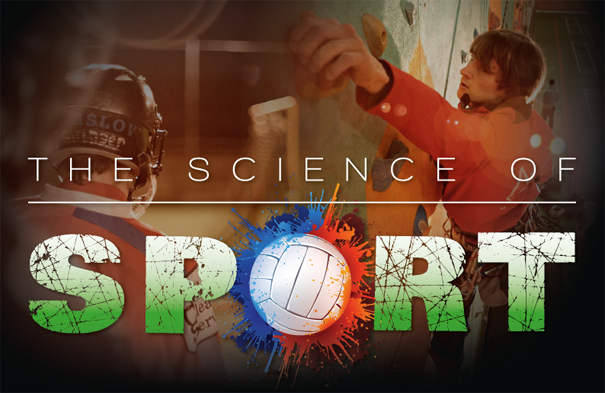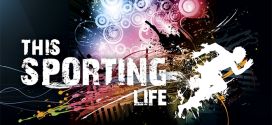
Whether working with top athletes or with the wider population, a career in sport and exercise science presents a sporting opportunity for you to make a real difference.
BY Sam Worth
Sport and exercise science is a very broad term covering the understanding and application of scientific skills to both sporting situations and general health. If you are interested in sport and a related science such as biomechanics, physiology or psychology then this could be the career for you.
Sport and exercise scientists have one or both of the following goals in common:
- To improve the sporting performance and success of amateur to elite performers, who could be within individual or team sports, able bodied or disability sports.
- To boost the health and fitness of the general public outside of competitive sport. This can be through the promotion of healthy living or physical rehabilitation after injury.
In top-level elite sport, the margins between success and failure are tiny, which is why it is increasingly crucial for athletes and teams to utilise the skills and knowledge of sport scientists.
Perhaps Lionel Messi wouldn’t be able to amaze onlookers with his exceptional skill, maybe Usain Bolt would not be the ‘fastest man on the planet’, and who knows how many tournaments Andy Murray would miss out each year if it wasn’t for the support of sports scientists.
Whether it’s detailed training programmes, specific performance analysis or innovative methods of rehabilitation and recovery; those people in the background are making all the difference.
But spare a thought for those working outside of the spotlight, sport and exercise science isn’t all about the glamour of elite competitors.
As mentioned, it seems easy for people to forget the ‘exercise’ word – it’s not just premiership footballers who suffer injuries or have a need to change their lifestyle but members of the public too.
In physiotherapy for example, setting up your own practice can be a useful and enjoyable way to make a living.
For people who have recently suffered physical impairments and are looking to return to normality and rebuild their strength, a physiotherapist can be invaluable.
With so many different avenues to explore, the entry requirements for sport and exercise science vary depending on the path you choose to take. To qualify as a professional, you may want to go for a Sport and Exercise Science BSc (Hons) or Sports Therapy BSc (Hons).
Typical entry requirements for these courses are around 280-300 UCAS points, preferred A-level subjects include biology, chemistry, maths, PE, physics and psychology.
After learning the fundamental basics in your first year of study you will be greeted with a range of module options, this is where you can begin to shape your future and decide which discipline you are most likely to specialise in post-university.
So let’s take a closer look at the three main strands of sport and exercise science and what they involve, starting with biomechanical.
Biomechanics
Biomechanics concerns firstly the mechanics of human movement and the forces which affect human movement e.g. footwear, equipment, playing surfaces.
Things which are considered in this profession are: why does the body move in that way? What is the best technique for this activity to both maximise performance and minimise injury? Is certain equipment hindering the performance?
Physiology
Next is physiology – this is the area which looks at the way our bodies react to exercise and training. Physiologists are employed in many different settings; typically they may be monitoring the training of an athlete or team by measuring heart-rates, blood samples and perceived exertion.
As with all branches of sport and exercise science, this can be in aid of training for a specific elite-level sporting event, general fitness or for the prevention and treatment of illness.
Psychology
Psychology is the third major branch of this sector; it examines the behaviour and mental processes of people involved in sport or exercise (those involved tend to specialise in one or the other).
In a sporting setting psychologists look to better equip athletes or teams to deal with and prepare for the pressures of competition. This could mean teaching mental strategies, improving team cohesion or focusing on self-appraisal of performance.
In an exercise setting the focus is very much on counselling, the principal aim being to help increase motivation levels of the general public to become more active and live a healthy lifestyle – “healthy body, healthy mind”.
There are various other sub-topics which you are likely to come across in a degree however; in addition to the three major areas, a degree at Loughborough University will also see you looking into the pedagogical and sociological influences on human performance. Pedagogical focuses on the need to tailor teaching and coaching to the diverse needs of different learners and sociological introduces students to the key sociological concepts and theories applicable to sport.
So, if you get a kick from seeing successful athletes and teams achieve their dreams, or you appreciate the journey of someone with an illness or injury returning to a healthy and enjoyable lifestyle, then perhaps sport and exercise science could be right for you.
Useful links:
British Association of Sport and Exercise Sciences: http://www.bases.org.uk/Home
National Careers Service:
https://nationalcareersservice.direct.gov.uk/advice/planning/jobprofiles/Pages/sportandexercisescientist.aspx
Images courtesy of Staffordshire University
 Moving On magazine Careers and Qualifications for School Leavers
Moving On magazine Careers and Qualifications for School Leavers

